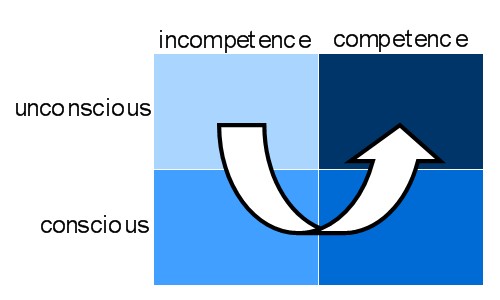August 8, 2006
Guy is a purple cowasaki, heh!
Seth Godin and Guy Kawasaki are two of the most likeable business writers and speakers on the net (for me; YMMV as usual). Even though I haven't met either of them personally, I have an inexplicably warm regard for both. So here they are together, Guy interviewing Seth: Ten Questions with Seth Godin.
Question: What are you incompetent at and have the will to change?Answer: In my essay on incompetence—in the book, did we mention I have a new book?—I argue that competence is the enemy. People who are competent are afraid to fail, afraid to experiment. They like being competent and defend it.
I’ve worked hard all my life to become incompetent but motivated at just about everything. Sure, there are plenty of areas where I’m completely afraid to change the routine—protecting my left shoulder, for example, or taking up drinking—but in general, if there’s a chance to get worse at something, I’m willing to give it a shot.
Heh. I guess I understand where Seth is coming from on this; the notion of a 'beginner's mind' "refers to having an attitude of openness, eagerness, and lack of preconceptions when studying a subject, even when studying at an advanced level, just as a beginner in that subject would." (wikipedia) comes from Zen Buddhist philosophy. I can't agree with his rejection of competence however, nor do I think that he really believes in incompetence as a goal. I've found it useful to consider competence-building as a cycle through four phases:

When you start, you are unconsciously incompetent -- that is, you don't know what you don't know. Then you start to realize that you are incompetent, and work to become competent. Finally, you are competent enough that you don't need to think about it, you act intuitively, unconsciously. This model is well-known in corporate training and coaching circles, and the usual goal is to progress through the phases as an individual or team. But I think the real game here is to be meta-aware of the strengths and weaknesses you have in each phase, and the barriers each presents to creativity and innovation. It is hard to maintain a beginner's mind when you are a competent individual in a culture that reinforces your self-perception of expertise; it is equally hard to maintain confidence in your ideas and aspirations when you can see that your learning curve goes straight up an overhanging cliff.
Posted by Gene at August 8, 2006 10:04 AM | TrackBack

